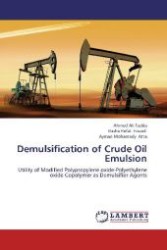Full Description
A critical interpretation of essential Kiganda royal court songs that examines how the meanings of their lyrics enter into dynamic dialogue with contemporary national politics in Uganda.
Lyric interpretation, which Damascus Kafumbe defines as a process of creative renewal that infuses vitality into songs, enables interpreters and analysts to derive a multiplicity of meanings from songs instead of being limited to a single literal narrative. As he and his research collaborators demonstrate, the process extends the life of a song by allowing it to generate new versions, meanings, and relevance. Kafumbe examines how lyric interpretation serves to renew the lives of twenty-one songs from the repertoires of royal court musicians of the Kingdom of Buganda, arguing that the meanings of these songs are not singular, static, and monolithic but rather dynamic and multivalent.
Through extensive research within past and present contexts, Kafumbe presents a series of unique perspectives on the ways Kiganda court songs reflect varied kinds of power relations. These meanings, which surface via lyric interpretation, come from daily interactions among citizens and between leaders and subjects. This interpretive process helps illuminate truths and clarify myths about the power dynamics that shape political life in present-day Uganda, highlighting the relevance of court song lyrics to contemporary national contexts. By engaging with the book's wide range of voices, readers will learn to appreciate these songs, their historical and contemporary contexts, and their composer-performers' stories and interpretations more fully.
This book is available as Open Access under the Creative Commons license CC BY-NC-ND.
Contents
Prologue: Songs, Stories, and Strategies
Part I: Foundations
1. Political Landscape, Court Music, and Research Collaborators
2. Research Methods and Approaches to Lyrical Interpretation
3. A Multi-Epistemological Framework: Theoretical Discourses and Canons
Part II: Songs about Political Engagement, Criticism, and Commentary
4. "The Handsome Catch a Slight Squint": False Praise
5. "Fair-Skinned": Flattery, Deceit, and Satire
6. "As He Plucked Them": Greed and Selfishness
7. "Householder": Mourning and Ridicule
8. "Federalism": Manipulation, Exploitation, and Reciprocity
Part III: Songs about Leadership and Responsibility
9. "Unadvisable Kayemba": Advice and Caution
10. "He Has a Lot on His Mind": Deliberation and Animosity
11. "Gganga Had a Narrow Escape" or "They Chopped Off His Fingers": Punishment and Mercy
Part IV: Songs about Loyalty and Duty
12. "I Would Have Given You a Large Haplochromis": Regret and Appreciation
13. "The Flutists' Legal Case": Lament and Uncertainty
14. "The Little Lion": Power and Selfishness
15. "The King Is a Lion": Reverence and Love
Part V: Songs about Mutuality and Cooperation
16. "Mawanda Loves His Men" and "They Show Each Other Stumps": Love, Unity, and Reciprocity
17. "Baamunaanika Hill": Genuine Praise
18. "We Love the Supreme Man Exceedingly": Love and Respect
Part VI: Songs about Conflict and Loss
19. "Ssematimba and Kikwabanga": War and Fate
20. "Poland": War and Imperialism
21. "The Battle of Nsinsi": Civil War
22. "Let Me Plod with a Stick Close to Kibuuka": Disagreement and Invocation
23. "The Pebble is Breaking Me": Mortality and Spirituality
Author Interviews
Works Cited
Index







